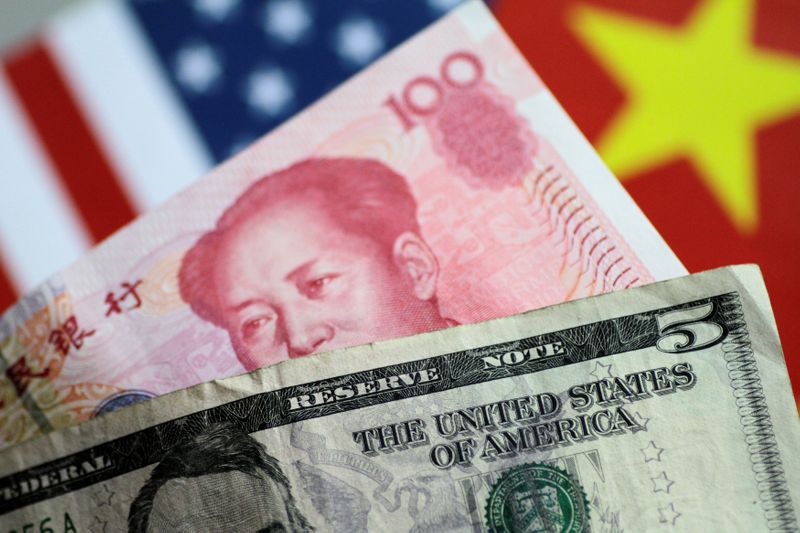By Hideyuki Sano
TOKYO (Reuters) - The dollar held firm on Tuesday after a key U.S. manufacturing survey showed a surprise recovery, while concerns about a widening coronavirus outbreak in China kept the yuan and the Australian dollar subdued.
The dollar index (=USD) rose 0.44% on Monday, the biggest gain so far this year, and last stood at 97.802. It was boosted by a report from the Institute for Supply Management (ISM) reported that U.S. factory activity unexpectedly rebounded in January after contracting for five straight months amid a surge in new orders.
Against the yen, the dollar traded at 108.62 yen , after a gain of 0.3% on Monday, the biggest gain in a downtrend that started in mid-January.
The euro stood at $1.1062 (EUR=), having slipped 0.3% on Monday.
In Asia, coronavirus remained in focus as the number of cases and deaths showed little sign of slowdown.
"The question is how long it will take to contain the epidemic. While some people are selling risk assets, there are also lots of people who are looking for a chance for bargain-hunting," said Ayako Sera, market economist at Sumitomo Mitsui Trust Bank.
"If we start to see a decline in the number of new cases, then we could see an end. But at the moment, it is hard to say when that will happen."
The offshore yuan traded at 7.0127 yuan per dollar , holding slightly above its one-month low of 7.0230 per dollar hit in European trade on Monday.
The Australian dollar fetched $0.6690 , within sight of its 10 1/2-year low of $0.6670 touched last October, ahead of an interest rate decision Reserve Bank of Australia (RBA) due later in the day.
Although most investors expect the RBA to keep rates on hold at this month's meeting, a cut has not been completely ruled out, with markets pricing in a 100% chance of such a move by May.
Elsewhere, sterling fetched $1.2999 , having lost 1.54% on Monday on renewed worries about Britain's relations with the European Union. Prime Minister Boris Johnson set out tough terms for Brexit talks with the European Union, rekindling fears Britain would reach the end of an 11-month transition period without agreeing a trade deal.
Traders are also casting an eye on the U.S. state of Iowa, where Democrats are kicking off a process to choose a challenger to President Donald Trump.
Market players say a victory by a progressive candidate such Senator Bernie Sanders and Elizabeth Warren could hurt shares and lift safe-haven currencies as some of their policies are thought to be not in best interests of Wall Street.
